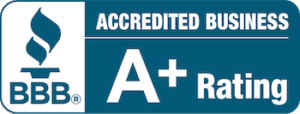How to Go About Selling My Home That Is in Foreclosure
Selling a property that has a foreclosure against it may be daunting and overwhelming at the same time but if done right and with understanding it is manageable including selling a home in foreclosure effectively per this guide which gives you steps and things to look out for, hence you can make the right decisions to sell your home based on facts other than assumptions.
Understanding Foreclosure
What is foreclosure?
Foreclosure is a legal process for a lender to recover the amount of the loan from a borrower who has stopped making mortgage payments. If someone misses mortgage payments, the mortgage company will start the foreclosure process so that they can own your house. The process is harsh because it can ruin your credit and leave you in a bad financial crisis.
Eventually, foreclosure affects both short-term residence situations and long-term credit history situations by making it difficult for people to access loans or mortgages in future.
A person must understand this matter well in order to avoid or manage such cases actively thus creating better sense when everything seems confusing during this period.
In general, every state has its own statutes around foreclosure so research more about them before going too far with anything. A foreclosure lawyer may advise you based on your situation about what you need to do.
Early action increases chances of addressing the issue without having a significant impact on your finances or credit standing.
Judicial vs. non-judicial foreclosure
Foreclosure can be classified into two types: judicial or nonjudicial. Judicial foreclosure typically takes a longer time because it involves court proceedings. On the other hand, non-judicial foreclosure is faster because it does not have court involvement. Understanding the type of foreclosure process that exists in your state is very crucial in preparing yourself for what comes next.
In a judicial foreclosure, the lender usually starts a lawsuit against the homeowner, and the judge will make a decision in the case. The process is usually long and gives homeowners more time than mortgage lenders to consider other options such as loan modification or short sale. However, an extended timeline may also mean increased legal expenses.
Non-judicial foreclosure is a less cumbersome process that allows a lender to sell the property without involving the court. It typically goes faster but gives the homeowner fewer chances to dispute the foreclosure action. Knowing which type of foreclosure applies to your particular circumstances will help you to plan your course of action and seek appropriate legal or professional advice.
How long does the foreclosure process take?
The length of time consumed in a foreclosure proceeding varies from one state to another or among different types of foreclosures. Sometimes, it may last several months, even over a year. Considering the timeline will help you make your next moves and manage your finances appropriately. The majority of lenders have specific information on foreclosure timeline though these periods differ.
As pertains to judicial foreclosure, it may take longer due to the court formalities required. Homeowners not facing foreclosure in this kind of scenario often get some months before the scheduled auction enabling them to either dispose of the property through sale or seek some accord with their financiers. Act fast in order not to lose deadlines.
Conversely, non-judicial foreclosures usually take less time with some states allowing them to be processed within about 60 days. If you want to stop losing your house in foreclosure or to lenders who were after it after the stipulated time running out, then such processes need faster reactions from clients. Within your state, knowing how long it takes can help you save your home now from being sold or prepare in advance in case you are forced to sell it later.
How to go about selling my home that is in foreclosure?

Determine your home’s worth
The starting point is to determine the market value of your house. This involves looking at recent sales data of similar kinds of homes in the area. A real estate agent who understands market trends can conduct a comparative market analysis that helps you understand how much your house is worth. You need to know the value of your home to set a realistic price for it.
Moreover, online real estate platforms also offer such estimates, though they should use these as starting points and not rely on them completely for final tier pricing. However, an in-person professional inspection takes into consideration specific factors which might have been omitted by online tools. It’s important to understand how much money buyers are willing to pay after careful consideration about this price should be.
On the other hand, your mortgage lender may be determining this. In such cases where you owe more than what can be obtained from selling the house, short selling is to be one of the options you may choose. Therefore, understanding what your house is worth will help you in making better decisions during the time of pre-foreclosure.
Calculate your mortgage debt and late fees, including missed mortgage payments
By knowing the total amount owed on your home loan plus any late fees and delinquent loans, you will be able to avoid making the wrong decisions. In order to get it straight, contact your servicer and ask for the payoff figure alone.
You need to track down all of your missed mortgage payments, late charges as well as other forms related to it so as to make an exact estimation. This information will show you how much you need in order to settle everything before it’s taken from you through foreclosure.
Identifying your responsibilities may also facilitate interactions with potential home buyers including those who want to become landlords within their community.
Subtract selling fees
A great many costs accompany selling one’s house, including closing fees, commissions accruing monthly payments to real estate agents as well as impending house improvement projects. Deducting all these selling fees from its market value helps in projecting out the expected returns upon disposal of the house. All expenses should be taken into account in order to avoid surprises.
Furthermore, closing costs often involve title insurance payments, escrow services fees and lawyer’s service charges which sum up too much if not put into consideration on time while doing your calculation. Also, don’t forget that you will have to pay your agent around 5-6% after successful sale while estimating net proceeds.
In addition to this, you may need to do some repairs or make further developments so as to draw potential buyers’ attention towards such a property. Being aware of these costs early enough to sell a house allows you to choose between repairing it or just selling it without any changes. Thoroughly calculating all your selling fees means you expect something real from a sale unlike just guessing.
Find a qualified real estate agent to guide you through the process
Finding a realtor who knows about foreclosures is beneficial. They help you understand the process of selling your home during pre-foreclosure. Look for a person with relevant experience in handling distressed properties since he/she is likely to give wise counsel.
Furthermore, a good property agent will provide ideas on competing prices for your house. This can also help in quick marketing of the property so that potential buyers are attracted. Even when the financial situation really is tough, their negotiation skills can get you the best deal ever.
Your experienced real estate agent could also connect you with other experts like foreclosure lawyers or financial planners who offer extra support services. When an effective supportive group is in place, it reduces the complexity involved in selling a house making one feel more at peace. Time taken to find a suitable real estate agent is time spent well ensuring calmness and economic health.
Options for Selling a Home in Foreclosure

Consider a short sale
A short sale occurs when you sell your house for an amount less than the remaining outstanding mortgage balance due. This process requires approval from the mortgage lender because they have to accept any shortfall on their loan. It may present a better resolution than foreclosure with less severe repercussions.
The lender typically forgives the unpaid portion after selling the asset below its loan value through short selling. Despite negatively affecting credit ratings, it is not as harmful as losing ownership through repossession.
Therefore, to enable completion of all required paperwork approved, it is necessary to work closely with your broker and financial institution as they must be willing parties in this transaction.
However, short sales procedures can be complicated and take longer; they often need more than six months before they are ended while saving owners from facing brutal foreclosure impacts. Therefore, anyone who wants to sell their house using this method should consider contacting a lawyer specializing in real estate matters or someone experienced in foreclosures.
Traditional sale or selling to an investor
Consequently, when it comes down to selling a house in the middle of a crisis such as foreclosure, one may choose between traditional selling and investor purchase options.
Listing it on the market is one way of selling it through a traditional manner whereas an investor will give you cash as soon as possible in return for your property after all possible assessments have been made even if at times he/she might not sell my house back at a cheaper price due to divergent reasons from either party’s side because time factor matters here more than anything else.
Alternatively, an ordinary (long process) selling might bring more money though it will take longer than expected before one gets back his/her investment in full.
To do this effectively, there are several things you need to do which include preparing your house well, marketing appropriately and possibly waiting for a potential buyer. It is the best choice when there is ample time between now and the time all steps of foreclosure will have been completed.
Besides, investors buy properties much more quickly within days or weeks-so there is no waiting period whatsoever in this type of dealing. They are commonly interested in purchasing houses on an “as is” basis; thus you will save both time and money by using their services instead of hiring a contractor for renovation.
Nonetheless, such an offer might be less compared to selling through normal channels Remember these points when thinking about how best to dispose of realized properties.
Understanding the foreclosure auction process and its implications
If you are not able to sell your house before the foreclosure date, then it may be put up for sale at a foreclosure auction. At such a sale, the highest bidder often purchases the house way below market price.
In general, this takes less time since the seller has no power over how his/her property will be bought at auction. Also, remember that winning bidders must pay most winning bids immediately which compels them not only to pay in cash but also use cashier’s checks.
One has to fully comprehend their rights and responsibilities concerning these types of transactions. Consultation with an attorney at law that focuses mainly on foreclosures might help one understand more details or come up with ideas on how to prevent foreclosures.
Stopping the Foreclosure Process

Can I stop the foreclosure process once it starts?
Yes, once the foreclosure process has started, it can be prevented. However immediate action has to be taken to stop foreclosure now. Talking to your mortgage lender about possibilities like repayment plans, expiration notices among other things could help you in getting solutions out. Speeding up your response time is vital for avoiding additional problems.
Another good way of stopping foreclosure is to dispose of the property before the date of foreclosure sells it away. This can be done through selling the property traditionally, conducting short sales or opting for sale to investors.
In case there are foreclosure-experienced brokers at such situations those are the best people that can help advise faster means through which this could happen.
Next Steps and FAQs
Will I still owe money after foreclosure?
After home foreclosure, whether you owe money or not depends on the selling price of your home and the outstanding balance of your mortgage. In case the property is sold at a lower price in comparison to what is owed, the lender may go for a deficiency judgment to reclaim the rest.
On the other hand, some states prohibit deficiency judgments under certain conditions.For you to understand your obligations, it is important to carefully review your mortgage agreement together with state laws concerning this matter.
Foreclosure attorneys have necessary information regarding money owed after foreclosure; hence consulting them would bring more light into this issue in case of doubt or financial hardship. Furthermore, contacting your creditor for negotiation or seeking legal advice can help you reduce or eliminate whatever balance may remain.
One way you can make well-informed choices is by taking into consideration the possible monetary implications before foreclosure occurs. There are other alternatives like short sale or loan modification which might lessen the blow and save you from being in debt after foreclosure.
How long does it take for the foreclosure process?
There are several factors that determine how long it will take to sell a foreclosure home including the local real estate market, the home’s condition, and method of sale used. Selling such a property might take from a few weeks to several months on average.
On the other side, traditional sales usually require time for repairs, staging and marketing efforts. However, using real estate investors or short selling may help in quickening this process hence leading into a faster sale of these properties.
In conclusion

Navigating the process of selling a home in foreclosure can be challenging but knowing what lies ahead and being proactive will result in successful sales. Each option offers different advantages depending on the situation including short sale, conventional sale or investor purchase.
Working with knowledgeable people like real estate agents or foreclosure attorneys might provide some kind of worthwhile advice to obtain such successful sales. To effectively manage the whole foreclosure sale process while protecting one financial future one needs to be updated and act promptly.





























